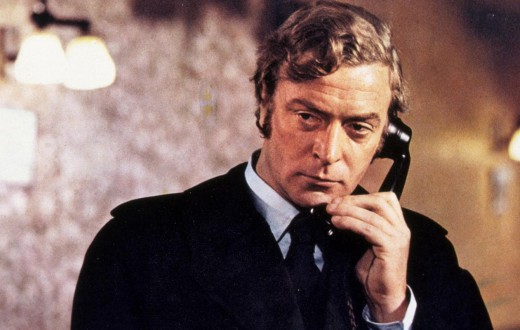In the industry of acting, it is not uncommon to feel pressure from your fellow actors. This pressure can come in the form of competition, comparison and even just simple peer pressure. While this pressure can be motivating, it can also be debilitating.
And in today’s fast-paced world, it’s easy to get caught up in the pressure of everyday life. Whether you’re an actor trying to land that big role or a student juggling homework and extracurricular activities, stress can take a toll on your mental and physical health.
When you’re under pressure, it can be difficult to stay calm and collected. But if you want to be a successful actor, it’s important to learn how to control your nerves and focus on the task at hand.
Here are some tips:
1. Take a deep breath.
When you feel yourself getting tense, take a few deep breaths and focus on your breathing. This will help you relax and clear your mind.
In our fast-paced lives, it’s easy to get caught up in the rat race and forget to slow down. But taking a few deep breaths can do wonders for your body and mind.
When you’re feeling stressed or overwhelmed, take a few minutes to yourself to focus on your breath. Taking deep, diaphragmatic breaths helps to oxygenate your blood and relax your body. It’s also a great way to clear your head and refocus your thoughts.
So next time you’re feeling frazzled, take a deep breath and give yourself a moment to relax. You’ll be surprised at how much better you’ll feel afterwards.
2. Visualize success.
Instead of dwelling on all the things that could go wrong, visualize yourself achieving your goal. This positive thinking will help increase your confidence and reduce stress.
– Start by picturing what you want to achieve. really see it in your mind’s eye.
– Think about how you will feel when you achieve it. Allow yourself to experience those positive emotions.
– Now, start thinking about the steps you need to take to get there. See yourself taking each action and moving closer to your goal.
– As you continue picturing the steps you need to take, also visualize any obstacles that might come up.
– See yourself overcoming those obstacles and continuing on toward your goal.
-Believe in yourself and know that you can achieve anything you set your mind to.
– Remember, visualization is a powerful tool that can help create the life you want for yourself. So use it often!
– “The best way to predict the future is to create it.” (maybe Abraham Lincoln said this quote, but no one can confirm it.)
3. Talk to someone who can help talk you through the situation.
Sometimes it helps to have someone else’s perspective on things.
If you’re feeling lost, helpless or just need someone to talk to, don’t hesitate to reach out for help. Talking to someone who can help talk you through the situation can be incredibly beneficial. Here are a few reasons why:
– They can offer impartial advice.
– They can help you see the situation from a different perspective.
– They can help you develop a plan of action.
– They can provide support and encouragement.
-They can help you stay motivated and focused on your goals.
 4. Try not to let the situation get the best of you.
4. Try not to let the situation get the best of you.
You are in control of your own emotions and reactions. This is a fact. You are the only one who can determine how you feel and how you will react to any given situation. While it’s true that other people and circumstances can influence your emotions, ultimately you are the only one who is in control of them.
So what does this mean for you? It means that you have the power to choose how you want to feel. If something happens that makes you sad, angry, or scared, you can choose to react in a positive way. For example, instead of getting angry, you could choose to laugh it off or walk away from the situation.
It’s up to you to decide what kind of person you want to be. Do you want to be someone who gets easily upset and lashes out at others? Or be the type of person that people want to work with over and over again?
5. Make a plan.
If you’re feeling overwhelmed, sit down and make a list of everything you need to do.
When starting out as an actor, it’s important to have a plan. This will help you stay focused and motivated, and make the most of your opportunities. Here are some things to consider when making a plan for your acting career:
– What kind of roles do you want to play? Do you want to focus on TV or film? Theater? Commercials? Make a list of the types of roles you’d like to book, and start targeting those specific types of projects.
– How much time can you realistically commit to acting? If you’re working another job or attending school, you’ll need to factor in the time you have available for auditioning, rehearsing, and performing.
– What are your goals? Do you want to be a working actor, or are you just doing this for fun?
 6. Take a break if you need to.
6. Take a break if you need to.
When it comes to working on set, there are a lot of different opinions on taking breaks. Some people believe that it is perfectly fine to take a break when you need one, while others think that it is unprofessional and disruptive. So, what is the right answer?
Well, it ultimately depends on the situation. If you are feeling sick or exhausted, then it is probably a good idea to take a break. However, if you are just feeling slightly uncomfortable or bored, then it might be best to tough it out and continue working.
Of course, there are always exceptions to the rule. If the scene you are shooting is particularly emotional or demanding, then you may need to take a break in order to avoid burning out. Ultimately, it is up to the actor to decide whether or not they need a break.
Pro-Tips:
1. Know your lines
2. Get to set early
3. Bring a snack
4. Talk to the crew
5. Relax and have fun
By following these simple steps, actors can avoid feeling pressured while on set and focus on having fun with their work.







